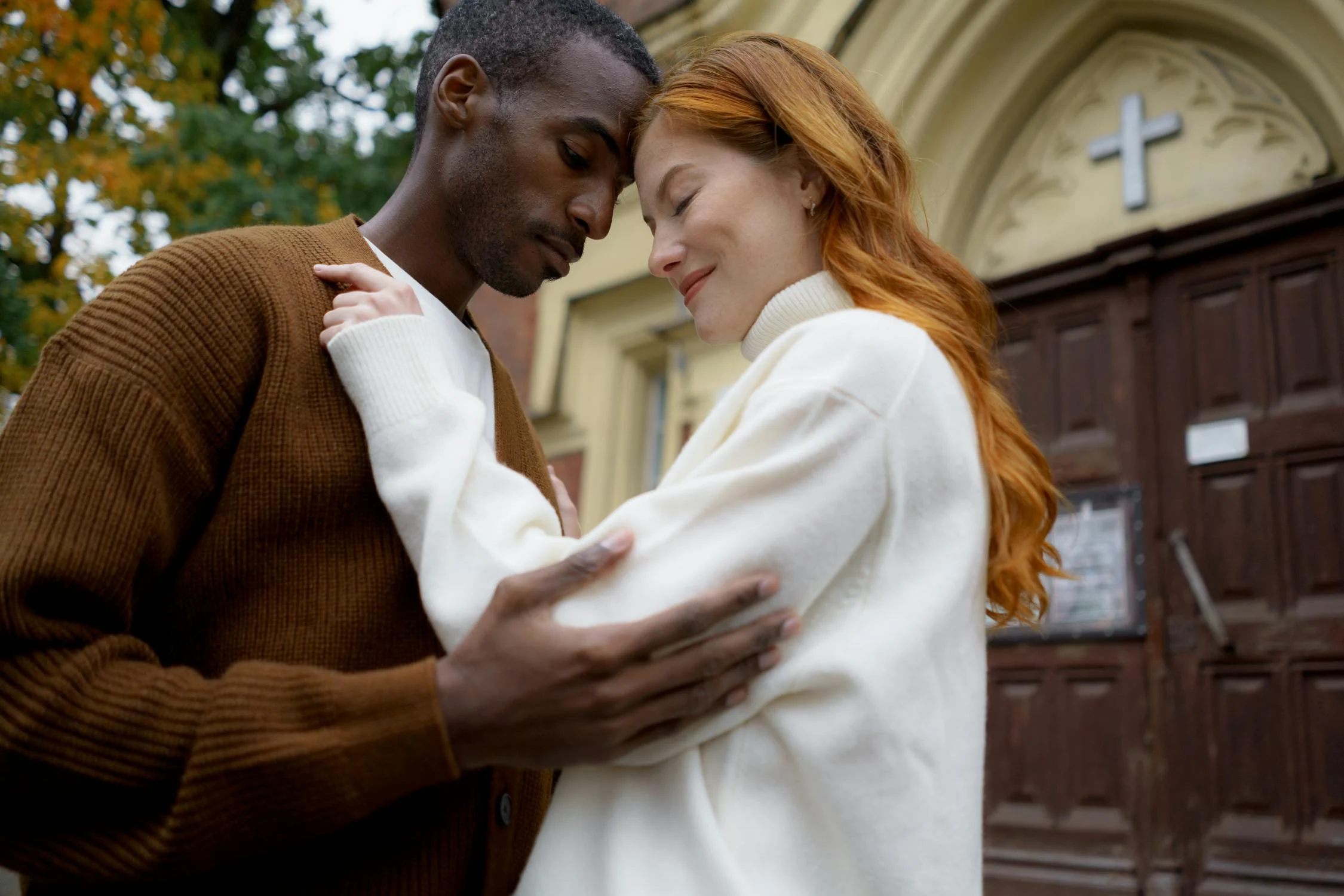
How to communicate effectively in relationships
Date
Tuesday, Dec 17, 2024Minutes to read
10 minDate
Tuesday, Dec 17, 2024Minutes to read
10 minAt the peak of our existence as humans, we owe our superiority to other species on the planet majorly because of our ability to communicate. In a broad and technical sense, communication refers to the act of sharing or exchanging ideas, information, thoughts, or feelings through speech, written language, body language, gestures, and even non-verbal indicators.
In this article, we'll indulge in the various aspects of effective communication, why is it important, the causes of the communication gap between partners, and provide practical steps to tackle any communication issues and ensure a lasting and satisfying relationship.
Now, you may ask, apart from the technicalities, what do you mean by communication in a relationship? In relationships, communication refers to the way two individuals share information, express feelings, and convey thoughts with each other. For emotional depth to exist, there must be communication. It can range from spoken or written expression of ideas and emotions to body language and gestures.
Why is communication important?
As the famous saying goes, communication is the key and at this point, the importance of communication does not go unnoticed, and in a relationship, it is quintessential for many reasons:
Understanding each other and setting goals
Effective communication will ensure partners understand each other's thoughts, ideas, feelings, and perspectives. It also helps you set goals for your relationship- short and long-term and motivates you to strive to achieve them.
Conflict Resolution
All relationships have their ups and downs and often run into conflicts. Open communication helps partners to convey their concerns and expectations which can lead to resolving issues constructively rather than letting them fester.
3. Expressing needs and desires
Communication helps lovers express their feelings and needs. Through this, they can clearly express what each needs emotionally and physically, which stimulates increased satisfaction in the relationship.
Building trust
When two individuals communicate openly and honestly, it builds trust. Trust is the bedrock of the relationship that supports and holds it sturdy over time.
Enhancing Intimacy
The more the partners communicate, the more they connect and are close to one another. It fosters closeness and enhances emotional and physical intimacy.
Prevents misunderstandings
Miscommunication can lead to misunderstandings and assumptions which can harm the relationship. Clear communication helps clarify intentions and keeps unnecessary conflicts at bay.
Support and appreciation
Via communication, partners can show their support and appreciation for each other which leads to personal growth and greater happiness.

What causes the communication gap between partners?
Although it is evident that effective communication helps a relationship flourish and grow, communication does not come easy to everyone. Hence, there are plenty of couples across the globe who experience communication gaps in their relationships and often fail to understand what’s causing them.
A communication gap is a breakdown or disconnect in the exchange of information, where one or both parties fail to understand each other fully or accurately. This gap can result from unclear messaging, assumptions, lack of feedback, emotional misunderstandings, or cultural and language differences. Therefore, we've tailored some of the most common reasons for miscommunication or communication between partners for your better understanding.
Assumptions and misunderstandings
Partners might assume they know what the other person is thinking or feeling without actually checking in. This leads to misunderstandings, as the assumptions often don’t match reality.
Lack of active listening
This is one of the most common reasons for miscommunication. Communication is not just always about speaking; there's listening involved too. When one or both partners don’t listen to understand, but instead listen to respond or defend, important messages can be missed.
Emotional triggers
At times, we unknowingly and unintentionally say something that can hurt or offend others. Certain topics or ways of communicating can bring up past hurts or insecurities. These triggers can cause emotional reactions like anger, withdrawal, or defensiveness, which disrupt the flow of open communication.
Avoiding conflict
Some people choose to avoid discussing certain topics to prevent conflict. While this might keep things peaceful in the short term, it can create a distance over time as unresolved issues accumulate and cause frustration and anger.
Grudges or resentment
Past hurts or unresolved issues that haven’t been addressed can create walls in a relationship. A partner may become less willing to communicate openly if they feel the other person doesn’t acknowledge past grievances or want to sort indifferences.
Digital distractions
Too much time for technology means little time for your partner. If your partner is frequently distracted by phones or devices, they miss opportunities for connection, leading to a gradual communication gap.
When communication gaps occur, people may feel frustrated, isolated, or disconnected. Addressing and bridging these gaps involves active listening, empathy, and open dialogue to ensure both sides feel heard and understood.
Just like any person does when they desperately want to know something, you may also look for signs that determine whether your relationship has great or poor communication. It's time to have a look at some common signs for both, however, this is not the final truth, and there's always room for improvement if things don't look too good.
Signs of great communication
You both listen to each other actively without interrupting.
You feel safe to express your true feelings and concerns without fear.
You both show empathy and strive to understand each other's perspectives and emotions.
You can address conflicts calmly and respectfully.
You regularly check in on each other about feelings, goals, and the state of the relationship.
You respect each other's emotions and beliefs.
You show constant appreciation for each other's contributions and achievements.
You are willing to apologize and forgive
Signs of poor communication
Assuming what your partner feels or thinks
You are constantly criticizing each other.
You resort to passive-aggressive behavior such as sarcasm, eye-rolling, or withdrawing affection.
You get defensive when your partner tries to talk to you.
Giving each other silent treatment
Lack of reassurance after a fight or argument
It is important to identify these subtle signs of poor communication and work towards improving them. Avoiding tough conversations to avoid conflict and keep peace can be yet another example of a communication gap. Bottling up your frustration and anger as the issues pile up will ultimately lead you to dump all your anger and frustration on other people in your life. You might end up yelling at a friend or a family member because you have been upset with your partner and haven’t confronted them.
How to bridge the communication gap and build better and more effective communication

If you feel poor communication is causing stress and negativity in your relationship, review the following strategies to improve your communication and build a stronger connection.
Be honest
Be open and honest while expressing your ideas, feelings, and desires. Do not hold back if something has been bothering you. Open and honest communication fosters trust and better understanding.
Be an active listener
Pay attention and listen attentively to what your partner has to say. Look in their eyes, nod, and ask questions. Respectfully listening will enhance their confidence in sharing.
Speak lengths without words.
Communication does not always have to be written or spoken. Maintaining eye contact while talking, gestures such as nodding and smiling, and positive body language can convey a lot without words.
4. Set quality time aside
Give quality time to your partner and relationship without distractions so that they will begin to nurture memories and augmented communications.
5. Be an empath
Try to understand your partner's emotions and validate their feelings. Let them see how much you are there for them and how valued and respected they are in the relationship.
Seek professional help
Sometimes, it's difficult to express your feelings or certain things are just too hard to express. Don't be too harsh on yourself, though. In case you or your partner have difficulty communicating or expressing your feelings, don't hesitate to seek professional help from a counselor or therapist. It will definitely give you independent room for discussion and insights from a neutral third party on areas for improvement.

Conclusion
In any relationship, effective communication is more than just talking; it’s about truly connecting with your partner on an emotional, intellectual, and even physical level. As we’ve explored, being able to openly share thoughts, feelings, and needs creates the foundation for trust, intimacy, and growth. Every relationship faces challenges and misunderstandings, but couples who prioritize communication can turn those obstacles into opportunities for deeper understanding and connection. Practicing active listening, learning to express needs honestly, and showing empathy during tough conversations are all essential steps toward a stronger relationship.
It's also important to remember that communication styles differ, and what works for one couple may not work for another. Discovering and adapting to each other’s communication preferences can greatly enhance the quality of interactions and ensure both partners feel valued and understood. By making an effort to communicate openly and honestly, even during difficult times, couples can create a safe space where both individuals can grow and thrive together.
Lastly, there’s no shame in seeking help if communication becomes challenging. Many couples find that a neutral third party, like a counselor or therapist, can offer new tools and perspectives to navigate communication barriers. The journey toward better communication is ongoing and takes commitment from both partners. With patience, practice, and a mutual commitment to growth, couples can build a relationship filled with understanding, respect, and lasting happiness.









